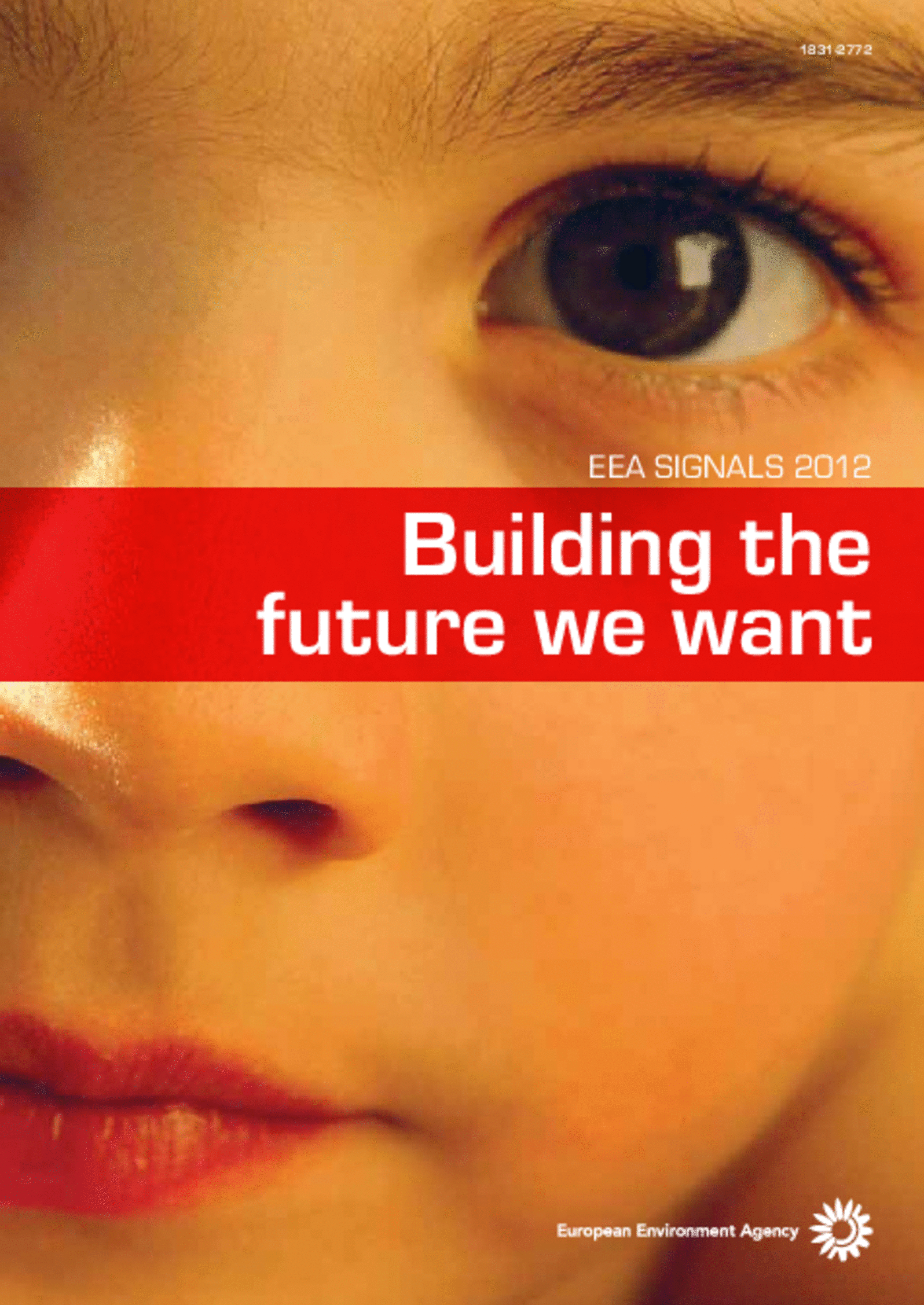All official European Union website addresses are in the europa.eu domain.
See all EU institutions and bodiesSignals 2012 brings together environmental issues such as sustainability, green economy, water, waste, food, governance and knowledge sharing. It is prepared in the context of the United Nations Conference on Sustainable Development — Rio 2012. This year's Signals will give you a flavour of how consumers, forward-thinking businesses and policymakers can make a difference by combining new technological tools — from satellite observations to online platforms. It will also suggest creative and effective solutions to preserve the environment.
EN PDF: TH-AP-12-001-EN-C - ISBN: 978-92-9213-254-5
- Bulgarian PDF - Сигнали 2012 г. – Да изградим бъдещето, което искаме (3.84MB)
- Czech PDF - Signály 2012 – Vytváření budoucnosti podle našich představ (3.84MB)
- Danish PDF - EEA Miljøsignaler 2012 – At bygge den fremtid, vi ønsker (3.79MB)
- Dutch PDF - EEA Signalen 2012 – Bouwen aan de toekomst die we willen (4.0MB)
- Estonian PDF - Signaalid 2012 – Soovitud tuleviku rajamine (3.79MB)
- Finnish PDF - Ympäristösignaalit 2012 – Rakentamassa haluamaamme tulevaisuutta (3.79MB)
- French PDF - AEE Signaux 2012 – Construire l’avenir que nous voulons (3.96MB)
- German PDF - EUA Signale 2012 – Die Zukunft gestalten, die wir wollen (3.81MB)
- Greek PDF - ΕΟΠ Σήματα 2012 – Χτίζοντας το μέλλον που θέλουμε (4.03MB)
- Hungarian PDF - EEA Jelzések 2012 – Azt a jövőt építjük, amelyet szeretnénk (4.05MB)
- Icelandic PDF - Umhverfisteikn 2012 – Að skapa þá framtíð sem við viljum (3.99MB)
- Irish Gaelic PDF - Signals 2012 – An todhchaí atá uainn a fhorbairt (4.0MB)
- Italian PDF - Segnali ambientali 2012 – Costruire il futuro che vogliamo (3.78MB)
- Latvian PDF - Signāli 2012 – Veidojot nākotni, kādu vēlamies (3.79MB)
- Lithuanian PDF - Signalai 2012 – Kuriant ateitį, kokios norime (3.72MB)
- Maltese PDF - Signals 2012 – Nibnu l-futur li nixtiequ (4.0MB)
- Norwegian PDF - EEA Miljøsignaler 2012 – Bygge framtiden slik vi vil ha den (3.82MB)
- Polish PDF - Sygnały EEA 2012 – Budujemy przyszłość, jakiej pragniemy (3.99MB)
- Portuguese PDF - AEA Sinais 2012 – Construir o futuro que queremos ter (3.96MB)
- Romanian PDF - AEM Semnale de mediu 2012 – Construirea viitorului pe care ni-l dorim (4.02MB)
- Slovak PDF - Signály 2012 (4.05MB)
- Slovenian PDF - Signali 2012 – Oblikovanje prihodnosti, kakršno si želimo (4.18MB)
- Spanish PDF - EEA Señales 2012 – Crear el futuro deseado (3.81MB)
- Swedish PDF - Miljösignaler 2012 (4.01MB)
- Turkish PDF - İşaretler 2012 (4.05MB)

